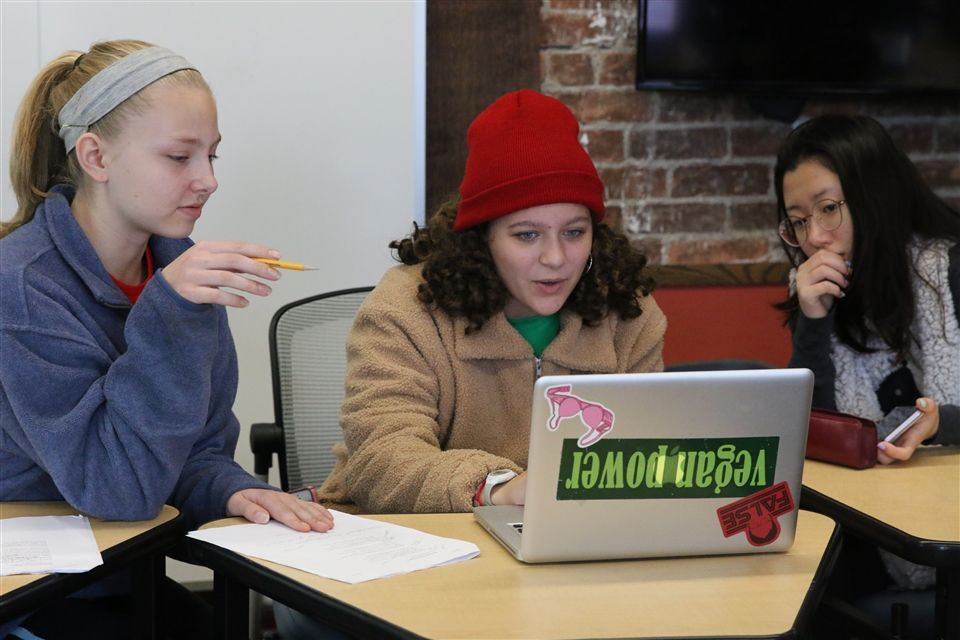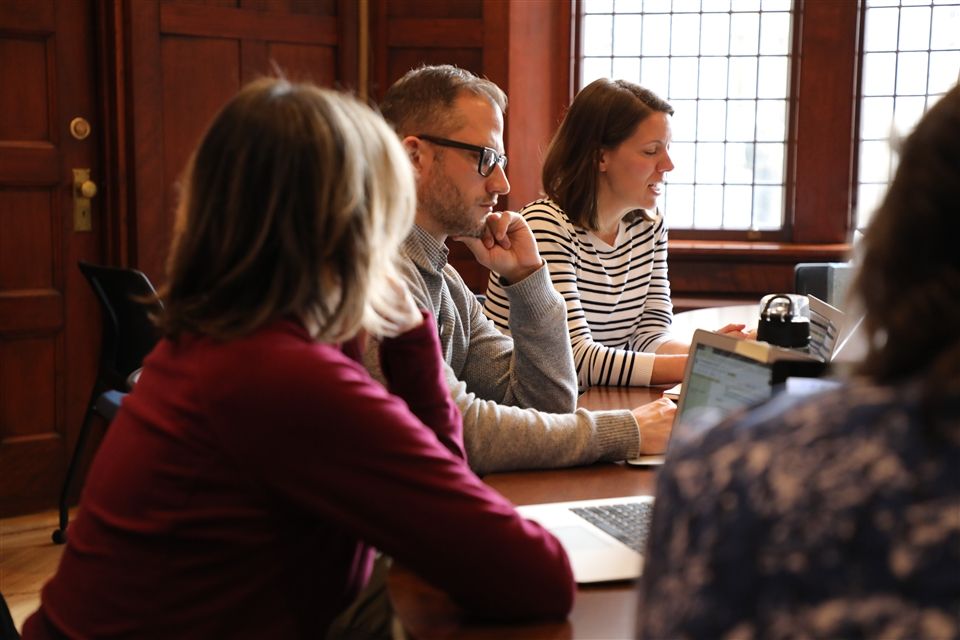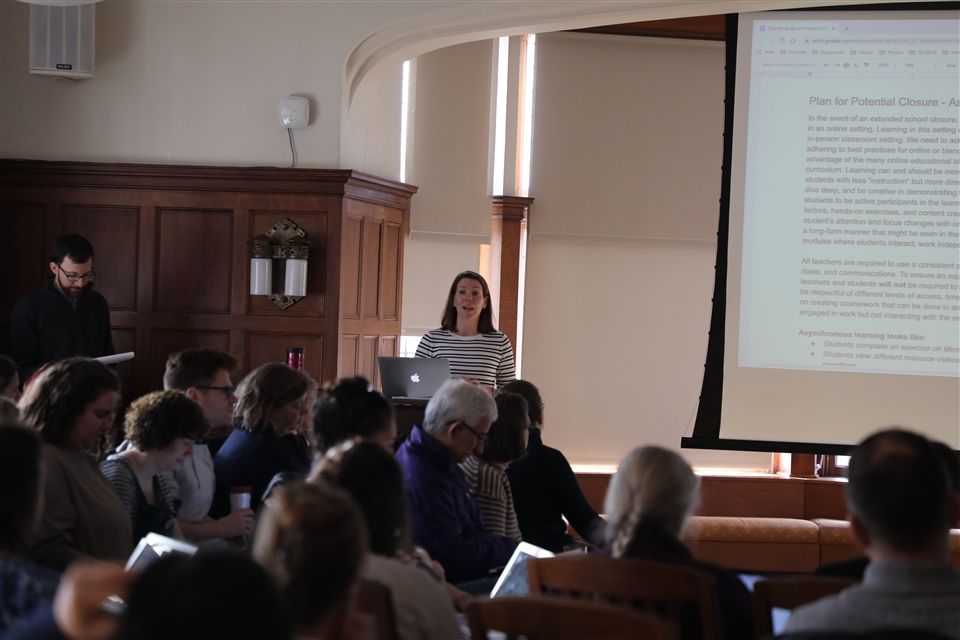Emma READY: Setting A Life-Long Foundation For Success
7/29/2020
Suzanne Romero Dewey
Starting high school is a challenging and exciting time of life. It is the very challenge embedded in this transition that can foster positive growth and establish a promising trajectory. The ninth-grade year offers a rich learning landscape coupled with critical brain maturation. The ability to think more abstractly and more critically occurs at the very time that peer relationships become more meaningful and one’s own sense of identity is nourished. The transition into high school, research confirms, will have a critical impact on a student’s path toward achievement and wellbeing.
This past year a team of ninth-grade educators at Emma Willard School, under the leadership of Director of Curriculum and Innovation Josh Hatala, spent months researching, planning, and determining a program specific to the ninth-grade student. The designed outcome of this learning program guides a new Emma student through the pivotal ninth grade year to being a confident, prepared, appreciated, and reflective citizen.
The launching course is “Emma READY” and reflects the program’s overall purpose: helping students develop the skills necessary to take advantage of the learning that follows in subsequent years. The year-long course will be taught in small seminar groups and will face two foundational questions:
-
What does it mean to be an Emma student?
-
Who am I?
The course will cover topics such as language and identity, mental and physical wellbeing, the college process, digital citizenship, and how to navigate difficult conversations. The emphasis on emotional intelligence reflects our recognition that students need help in building and integrating skills in conflict resolution, critical problem-solving, and emotional management. The goal for Emma READY is to have students who feel a sense of belonging, can demonstrate empathy toward others, and have confidence in their own abilities.
The ninth-grade program also includes a History Seminar which will offer six seminar sessions created to support and extend beyond the ninth grade’s traditional history course content. Topics aimed at strengthening and teaching historical thinking include point of view, cultural differences, empathy, the mission of a girls’ school, viewpoint diversity, and charged language and topics. There will be a heavy emphasis on examining dialogue across differences and building empathy, tolerance, and humility.
The focus of the curriculum is to build greater coherence into the Grade 9 experience by using the year as a framing device for subsequent learning and to open up space and thinking for connection-making and reflection. Essential Questions will serve as a springboard to conversations and reflective practice. The grade-wise essential question of “So what?” will be partnered with discipline-specific essential questions such as:
-
Why make art?
-
What is mathematical about the world around us?
-
Why and how does history matter?
-
What is holistic health and how does it matter to me?
-
Why is it important for students to learn an additional language?
The focus will be on building community and developing reflective practices habitually and across platforms. Teachers will use various methods of introducing the essential questions and offering reflective opportunities which may include a syllabus question, a specific lesson, or even a moment of reflection introducing a new unit of study, or embedded in a conversation with advisees.
Reflective practices will be daily and ongoing nurturing greater self-awareness and self-direction. In some cases, a teacher may guide a class through a specific exercise or push students to utilize reflection journals, discussion forums, or Flipgrids to spur thinking and insight. Students will also develop their own student-led comments fostering a dialogue between teacher and learner. Standards will evolve as students learn to give and receive feedback, attend to learning goals, focus on strengths, and consider opportunities for growth.
Throughout the ninth grade year, teaching will take on different forms. Educators will employ problem-based learning, project-based learning, experiential learning, and community engagement to help engage students in authentic and student-centered learning that will help foster intellectual flexibility. The foundation will build in subsequent years toward work and learning that is increasingly more authentic, academically rigorous, and enables students to apply their learning pushing themselves for active exploration while making new and stimulating connections.
Grade 9 at Emma Willard School promises to be a journey of interdisciplinary exploration, self-agency, and self-discovery. Students will learn to examine social, historical, and personal issues utilizing empathy, inquiry, and reflection as lifelong habits for successful engagement and growth.

Three students in class working on a small group project with a laptop.

Director of Curriculum and Innovation Josh Hatala pictured in a planning session with Department Heads.

Dr. Meredith Legg presents to faculty.














